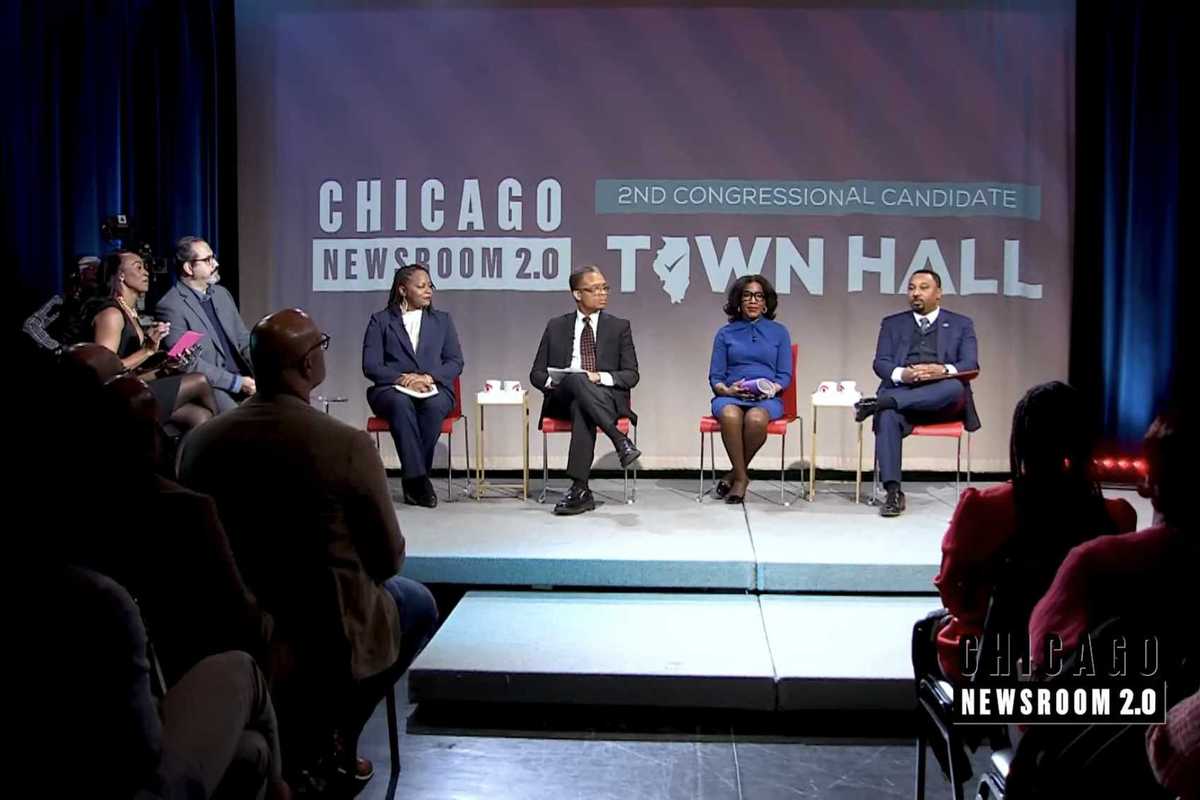Kull is Program Director of the Program for Public Consultation.
Lewitus is a Research Analyst at Voice of the People whose research interests focus on policy, public opinion and democracy reform.
Thomas is Vice President of Voice of the People and Director of Voice of the People Action. Thomas is an organizer and government relations professional with years of experience working in campaigns, advocacy, and policy research.
The Federal government has failed to address many issues facing our nation, largely due to increasing partisan polarization that results in near-constant gridlock. Some speculate this polarization is a reflection of the American public. However, Voice of the People has found that majorities of Republicans and Democrats actually agree on numerous positions–over 200 as of now. These surveys, conducted mostly by the Program for Public Consultation at the University of Maryland, differ from standard polls in that they provide respondents with background information and pro-con arguments, before they give their recommendations.
Net neutrality is about to once again become a major topic as the Federal Communications Commission (FCC) seeks to reinstate it. The implications are significant, as net neutrality regulations place major restrictions on Internet Service Providers (ISPs), prohibiting them from: creating internet “fast lanes” for users that pay more; providing faster speeds to the ISP’s own applications; or blocking or slowing down specific websites or applications. These rules were instituted by the FCC during the Obama administration, and then repealed by the FCC under the Trump administration. Now that the Biden administration has appointed pro-net neutrality officials to the FCC, they are proposing to reinstate those rules.
The policy debate over net neutrality is quite technical for the average citizen, but it touches on common value debates that every person can weigh in on such as the role of free markets, and the extent of government regulation in ensuring equal treatment. By providing people with the information necessary to understand the issue, as is done in public consultation surveys, the public can effectively apply their values to make a policy recommendation.
In 2022, after net neutrality rules had been repealed, a PPC survey provided respondents with a briefing on the issue and had respondents evaluate arguments for and against reinstating net neutrality regulations. A large, bipartisan majority (73%) supported reinstating them, including 82% of Democrats, 65% of Republicans, and 68% of Independents.
Without the background, standard polling has also found majority support for net neutrality, including a majority or plurality of Republicans, but with large numbers saying they don’t know or have no opinion. A Morning Consult/Politico poll in 2022 found 55% support, with just 16% opposed and a large 29% saying they don’t know or have no opinion. Among Democrats, 57% were in support and 15% opposed; and among Republicans, 49% were in support and 20% opposed. Earlier polls from 2021 ( Ipsos), 2017 ( Morning Consult, Ipsos) and 2018 ( Morning Consult) also found bipartisan majority support.
In the 2022 PPC survey the arguments in favor of net neutrality were found much more convincing than the arguments against it, though the arguments were reviewed by both proponents and opponents.
The first argument in favor of reinstating net neutrality, from the 2022 survey, stated that since net neutrality’s repeal, ISPs have taken advantage of consumers by slowing down internet speeds and requiring higher fees to reinstate them; thus net neutrality rules are needed to rein in such harmful behavior. That argument was found convincing by a bipartisan eight-in-ten (Republicans 74%, Democrats 86%).
The first con argument asserted that net neutrality regulations can stifle innovation, impede the development of internet infrastructure, and result in slower download speeds. Just four-in-ten found this convincing, including 46% of Republicans and 31% of Democrats
The second con argument proclaimed that concerns about the repeal of net neutrality have been overblown, because the Federal Trade Commission (FTC) is required to publicly report anti-competitive behaviors of ISPs. Just half found this convincing, although a majority of Republicans did (57%).
The second pro argument countered that disclosure of anti-competitive behavior is not enough, since the FTC has no power to actually police the major ISPs, which dominate the market and provide consumers with little to no choice. A bipartisan two-thirds found this convincing, including 74% of Democrats and 62% of Republicans.
A list of over 200 policy positions with bipartisan public support can be found on Voice of the People’s Common Ground of the American People website.



















